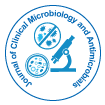

Perspective - (2023)Volume 7, Issue 1
The COVID-19 pandemic has affected millions of people worldwide, causing illness, hospitalization, and death. Researchers and medical professionals have been working tirelessly to develop effective treatments and vaccines to combat the virus. One potential treatment that has been explored is the use of ethanol inhalation due to its anti-coronavirus properties.
A study was conducted to assess the effectiveness of ethanol inhalation as a treatment for COVID-19. The study involved inhaling nebulized ethanol, as the virus enters the respiratory tract. The participants in the study were SARS-CoV-2-PCR positive patients who had been hospitalized to a respiratory clinic. The patients were randomly allocated to a control group and a therapeutic group. Both groups were advised to take three puffs of the spray and inhale it every six hours for a week.
The study measured the Clinical Status Scale, C-reactive protein, blood oxygenation, and Global Symptomatic Score (GSS). Two weeks later, the GSS in the intervention group fell more quickly. On day 14, the probabilities of the intervention group having a better clinical state were 5.715 times higher than those of the control group. This difference was statistically significant. Moreover, blood oxygen saturation increased earlier in the ethanol group, although there was no statistically significant difference. The intervention group had a reduced rate of readmission.
The anti-coronavirus properties of ethanol
In COVID-19, the cytokine storm is the main cause of fatalities. Alcohol already has proven antiviral properties that dissolve the fat layer and break down the coronavirus glycoprotein. Researchers have shown that ethyl alcohol has antiviral effects on extracellular surfaces. According to immunological studies, acute ethanol administration can have immunomodulatory effects on the innate immune system that are mediated by the proteins TNF-α mRNA and mitogen-activated protein kinase.
These effects can also lower cytokine storm by reducing inflammatory factors like TLR4, TLR8, TLR9, interleukin-6, and IL-3. The chemo taxis of bronchoalveolar macrophages are also improved by ethanol. Alcohol has also been shown to have other effects, including reducing viral multiplication by inhibiting RNA-dependent polymerase, bronchial dilation by relaxing involuntary smooth muscles, patient drowsiness and relaxation, and analgesic effects on the muscles.
Methanol poisoning, fat embolism, premature labor prevention, preeclampsia, and pulmonary edema have all been treated with ethanol injection in the past. Ana Castro-Balado et al. have shown the histological safety of ethanol inhalation treatment on rats' lungs and respiratory systems. The Food and Drug Administration has given ethanol its approval.
Ethanol inhalation treatment and COVID-19
Will ethanol inhalation treatment be beneficial in managing COVID-19 in light of these effects of ethanol on viral wall breakdown, proliferation, and reduction of immunological hyperactivity? The inhalation ethanol treatment has never been used before in COVID-19. One month after the COVID-19 epidemic, this notion was initially put forth and publicized. A study explaining the usage of ethanol in this sector was then delivered. A clinical trial was carried out to assess the impact of ethanol treatment on clinical state and prognosis in a predetermined group of patients in an effort to try to discover the solution.
The study participants
Based on the positive RT-PCR test result, 150 COVID-19 patients were assessed for inclusion in this research. 24 patients disagreed with the research, and two patients did not fit the inclusion requirements. Two groups of one hundred twenty-four patients were created (Intervention and Control). 25 participants were not included in the trial, including 6 who were unable to inhale ethanol. Their intolerance was mostly caused by hiccups, eye discomfort, coughing, and shortness of breath, sneezing, and the foul odour of alcohol. Nineteen of these individuals were disqualified from the trial because the approved approach was not followed or there were irregularities.
In conclusion, the use of ethanol inhalation as a potential treatment for COVID-19 has been explored, and a study has been conducted to assess its effectiveness. The study showed that patients who inhaled nebulized ethanol had a quicker improvement in their global symptomatic score and a reduced rate of readmission. Ethanol has proven antiviral properties that dissolve the fat layer and break down the coronavirus glycoprotein, and acute ethanol administration can have immuno-modulatory effects on the innate immune system, reducing the cytokine storm. Although the study had some limitations, including patient intolerance to inhalation ethanol and irregularities in the approved approach, the results suggest that ethanol inhalation treatment may be a beneficial treatment for managing COVID-19. Further research is needed to confirm these findings and to determine the optimal dosage and duration of treatment.
Citation: Breen H (2023) Can Ethanol Inhalation be an Effective Treatment for COVID-19?. J Clin Microbiol Antimicrob. 7:146.
Received: 03-Feb-2023, Manuscript No. JCMA-23-22423; Editor assigned: 06-Mar-2023, Pre QC No. JCMA-23-22423 (PQ); Reviewed: 20-Mar-2023, QC No. JCMA-23-22423; Revised: 27-Mar-2023, Manuscript No. JCMA-23-22423 (R); Published: 06-Apr-2023 , DOI: 10.35248/JCMA.23.7.146
Copyright: © 2023 Breen H. This is an open-access article distributed under the terms of the Creative Commons Attribution License, which permits unrestricted use, distribution, and reproduction in any medium, provided the original author and source are credited.